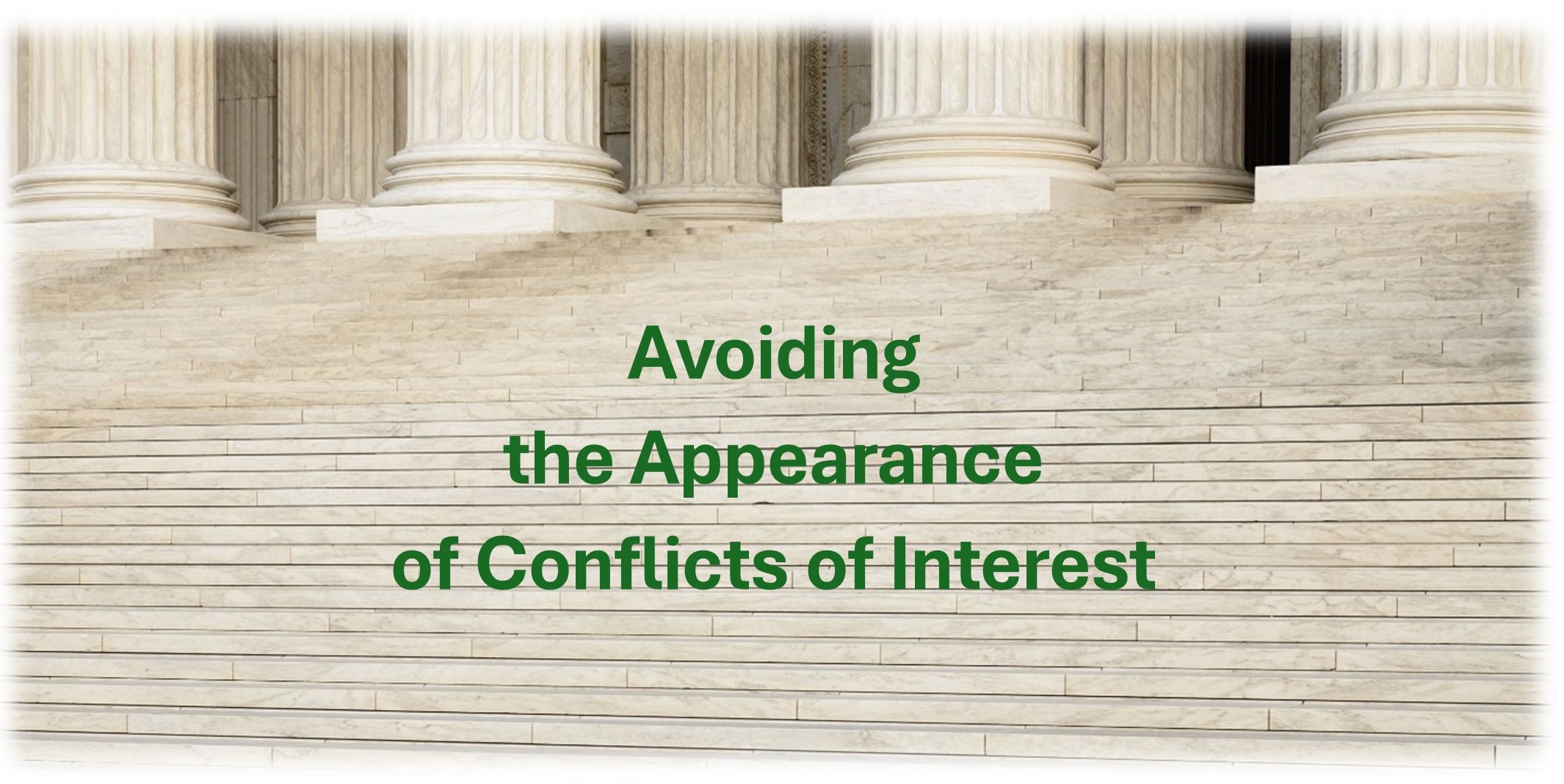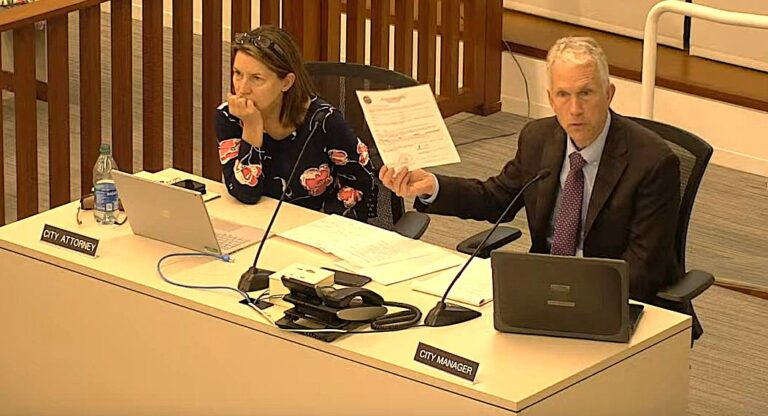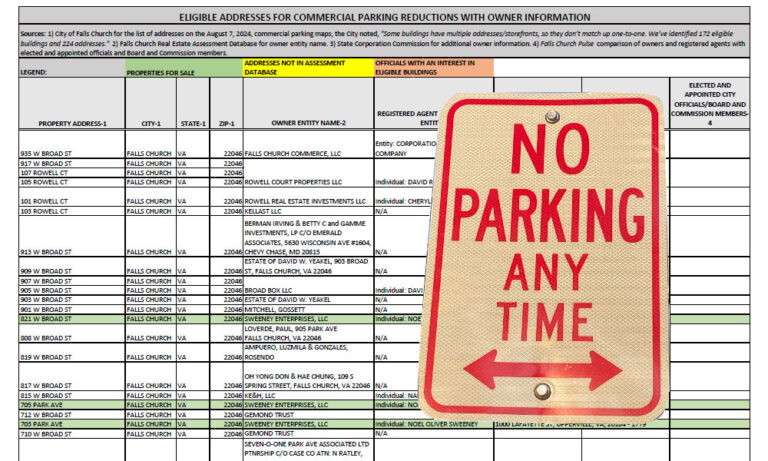Council Members Seek Sensitivity to, Guidance on Conflicts of Interest Following Economic Development Authority Annual Report; EDA Vice Chair Calls Comments “Potshots” (Update)
Update:
At the City Council’s regular meeting on June 10, 2024, Council Member Erin Flynn made the following statement in response to public comment at that meeting and in a local media source. Ms. Flynn asked Mayor Letty Hardi if she would prefer the statement come before or after annual reports from the Citizens Advisory Committee on Transportation (CACT) and the Housing Commission. Ms. Hardi told Ms. Flynn to go ahead if she planned to be brief, because the CACT and Housing reports were expected to be lengthy.
Ms. Flynn’s statement took just under six minutes [from timestamps 1:03:52 to 1:09:33 on the meeting video available on YouTube]. Her statement is provided here in full:
I just wanted to respond to the accusations that I defamed members of the Economic Development Authority at our last regular meeting on May 28. Since then, I’ve been accused of “perpetuating untruths,” “character assassinations,” “mean-spiritedness” unseen in over 30 years of Falls Church public life, etc., etc. And it was even suggested I should be sued for defamation.
These accusations distort what I said, as anyone who watches the May 28 meeting will see. I didn’t attack anyone’s character. I asked the Chair and the Vice Chair of the EDA—as part of our local government—to reflect on community concerns about conflicts of interest and to consider the steps the EDA as a government institution might take to address those concerns. My comments were forward looking and were intended to strengthen, not harm, our government institutions.
The response to my comments was to play shoot the messenger. I view the accusations as an effort to discredit me in the public eye and to deter me from speaking out on this issue. And I will say right now that I will not be silenced from speaking on matters of public concern.
Nor will threats of litigation silence me. I know what defamation is, and I know what defamation isn’t. And I know my constitutional rights and statutory protections to speak on matters of public concern, whether as a legislator, a public official, or as a private citizen. So the public can rest assured that I will continue to raise issues of public concern in public meetings.
More fundamentally, the accusations reflect profound [mis]understanding of what it means to have a conflict of interest. Raising conflict of interest concerns is not a personal attack on someone’s personal character. It has nothing to do with whether someone is a good or bad person. It’s not about a person’s subjective motives; it’s about situations that give rise to objective, outside appearances that public duties are mixed up with private interests.
Similarly, the accusation that I’m motivated by personal interest against “evil developers” is totally off-base. I’m neither a pro-growth nor anti-growth ideologue. I approach land use policy issues from a pragmatic perspective, just as I do other policy areas. And frankly, I don’t care about specific policy issues as much as I care about the importance of public trust in government institutions. I feel quite strongly about the rhetoric to divide City residents into warring camps on development issues because it doesn’t grapple with the complexity of concerns and it undermines thoughtful public discourse.
So with that said, I admit that on May 28 I recognized that the Chair and Vice Chair of the EDA wear two hats on development issues in our City. That is true. As EDA government officers, they transact in real estate and guide City land use plans and policies. But in their day jobs, they are a private sector real estate developer and an industry consultant whose professional interests include facilitating real estate development in the City.
That’s not to say that public and private interests can’t be aligned, and it’s not to say that they’re necessarily in conflict. But it is to say that questions about how the EDA handles conflicts of interest is a legitimate issue of public concern.
Depending on the situation, mixed roles and interests can indeed result in appearances of conflict. They can contribute to a sense that City decision making is too influenced by developers and their interests.
Take for instance the EDA Vice Chair’s role as the financial consultant to the developers who have a pending application before City government to get permission to build a mixed-use building at S Maple and Annandale. That project depends on the sale of an EDA-owned parcel of land to the developers, for whom the Vice Chair serves as a financial consultant.
The Vice Chair has appeared on behalf of the developers in his private sector capacity at a Planning Commission meeting about the proposed project. And in his private capacity, the Vice Chair created the fiscal impact statement that the developers are now using to persuade the City government that the Maple and Annandale project will be a financial success, within weeks of the Vice Chair’s appearance—in his public capacity—at a City Council session where he advised the Council and City staff on how to evaluate the fiscal impacts of mixed-use buildings.
Those examples relate to one EDA member on one project pending before the City. And I use the example solely to illustrate the issue. Where there is a mix of public roles and private interests, it is entirely legitimate for an elected official to raise conflict of interest concerns.
I reject the criticism that raising the topic isn’t “constructive.” Given the importance of building trust in government institutions, there are few more constructive areas on which we could focus. And I believe there are several procedural and policy measures we could take to improve how the City handles conflicts issues across our local government. The City Attorney, the City Manager, and the City Clerk can help us on these fronts.
Maintaining—and in some cases restoring—public confidence in government institutions is why I ran for office. And I believe my willingness to address these issues was one of the reasons I got broad public support. Talking about conflicts of interest shouldn’t be taboo, and it would be a dereliction of my duty not to do so.
Thank you.
Midway through Council Member Flynn’s statement, Mayor Hardi said, “Ms. Flynn, I don’t want to interrupt, but are you going to wrap it up?” At the conclusion of Ms. Flynn’s remarks, Ms. Hardi said, “So, apologies to our CACT and Housing Commission. I think they’re waiting for their annual reports. So thank you for your patience on that. I thought that would be more brief.”
Later in the meeting, Council Member David Snyder offered a “shoutout to the City Attorney for providing us very useful information on the appearance of conflict of interest, and I hope we can all move forward in a constructive and positive way on that issue.”
June 3, 2024
Editors’ note: The Falls Church Pulse was approached by several citizens who requested a complete and accurate account of what took place at the May 28, 2024, City Council meeting based on the record itself. Accordingly, we provide the following post with direct quotes from all involved and links and timestamps to the meeting video. For additional background on the EDA, its members, and their professional affiliations, please see our post titled 2024 Economic Development Authority Appointments and Updates on Mixed-Use Developments, Virginia Village, New Businesses, January 30, 2024.
Summary
The Economic Development Authority (EDA) presented its annual report to the City Council at its May 28, 2024, meeting. During Council comments on the presentation by EDA Chair Robert Young, Council Members Erin Flynn and David Snyder asked that the EDA be sensitive to public concerns about perceived conflicts of interest and that the City Attorney provide “state-of-the-art guidance” that would ensure the City meets the highest standards in this area.
EDA Vice Chair Ross Litkenhous objected to what he characterized as “vague references” lacking specifics and so amounting to “soft accusations” of or “potshots” at the body’s members. He said that in each of the instances of potential conflict last year to which his exchange with the Council members referred, the three EDA members with interests in changes to the City’s transition zone ordinance or the Quinn-Homestretch development – Mr. Young in the first instance and Mr. Litkenhous and Matthew Quinn in the second – recused themselves from discussions and decisions on advice from the City Attorney.
[For additional background on these projects and the interests of EDA members in them, see Pulse posts OakPark Townhomes – The First T-Zone Project on Park Avenue, May 1, 2024 and City Council Approves the 10-Story Quinn Homestretch Project, Not Waiting For Information On Sewer Outcome, March 11, 2024. In addition, see The Maple and Annandale Development – Another Mixed-Use Apartment Project, March 14, 2024, where Planning Commissioner Derek Hyra cautioned Mr. Litkenhous about the potential for conflict of interest. See also Planning Commission Shows Deference To Developers, February 15, 2023, for guidance from four developers, including Mr. Young, and the Falls Church Chamber of Commerce regarding the substance of the T-Zone ordinance and Developers’ Letters On T-Zone, February 15, 2023.]
“I’m not making accusations of people and saying that there are actual conflicts of interest,” Ms. Flynn replied. “I agree that you [recused yourselves] when you were supposed to.” Rather, because of the number of recusals last year and the public’s perception of them, she urged the Authority to think “about what it is that the EDA might be able to do to just make…clearer…who’s wearing which hats when, and how that isn’t influencing or leading to personal profit or any kind of influence in terms of position.”
“I thank you for your work,” Mr. Snyder added, “but I want to make sure that we are absolutely at the top of our game in terms of not only preventing real conflicts of interest, but the perception of conflicts of interest, which over time can erode the confidence of the citizens in their government.”
Acknowledging and addressing public perceptions
Following the Economic Development Authority’s (EDA) annual report to the City Council by Chair Robert Young, Council members were invited to comment and ask questions. In her comments, Council Member Erin Flynn said, “I recognize the good work that the EDA is doing; I can’t make it to your meetings most of the time; I watch a lot of the tapes, and so I see the robust dialog happening there, the exchange of views and ideas about what could be happening in the City and the positive report of all of the efforts.”
At the same time, she continued, “I think it’s important…to be careful about public perceptions of the EDA and not have an erosion of public trust, because the public doesn’t always understand the different roles that people are in.” As a result, in addition to avoiding actual conflicts, “which I know the members have been careful to do,” it is also important to avoid “the appearances of conflicts” and to think “about what it is that the EDA might be able to do to just make…clearer…who’s wearing which hats when and how that isn’t influencing or leading to personal profit or any kind of influence in terms of position.” [See the video from 1:10:10 to 1:11:18.]
During his remarks, Council Member David Snyder asked that the City Attorney “assist in providing state-of-the-art guidance on avoiding not only conflicts of interest, but perceptions of conflicts of interest for all of our boards and commissions. The EDA has a particular role to relate to the private sector, so I’m particularly interested in making sure that we’re following the very best guidance for conflicts of interest and perception of conflicts of interest in the future.” [See the video from 1:13:20 to 1:14:08.]
Litkenhous objects to lack of specifics

EDA Vice Chair Ross Litkenhous took exception to Ms. Flynn’s and Mr. Snyder’s comments. “This is the third or fourth time that I’ve heard somewhat of a vague reference to a conflict of interest within the EDA. I find it somewhat disheartening and disappointing that these vague references have been made about looking into perceived conflicts of interest and asking the City Attorney to weigh in on this without any specifics,” he said.
“We are all subject to the same conflict of interest training and requirements that those of you on the dais are subject to, and anytime a project or a decision has come in front of the EDA, all of us have sought out both current City Attorney guidance as well as prior City Attorney guidance and have recused ourselves accordingly,” Mr. Litkenhous continued. “So I would ask for the benefit of the EDA, and certainly for the benefit of the public as they hear these vague references – or, I would even say, soft accusations – about perceived or actual conflicts of interest that if there is an issue, that we address it publicly.”
Mr. Litkenhous maintained “that general references about a perceived conflict of interest without any specifics does a disservice to the EDA for individuals that have volunteered their time in the same way that you all have volunteered your time, based on a specific skill set and expertise.” [See video from 1:17:10 to 1:18:51.]
Snyder and Flynn respond

In response to Mr. Litkenhous, Mr. Snyder said, “I think I’ve been fairly diplomatic in requesting that the City Attorney help us not only address the specifics in technical legal conflict of interest, but in the perception and dealing with the perception of conflict of interest. It’s a concept well known in the law and well known in ethics and good government, and that’s what I’ve asked for. I want to preempt any conflict of interest or perception of conflict of interest, and that’s my objective going forward.”
“I do think that we have developers with particular interests currently before the City – at least three at one point – that were serving on the EDA,” he said, adding, “and I appreciate that the technical aspects of that, I think, were probably dealt with and I’ve never suggested anything else.”
“But what I am suggesting is that in this day and age, good city governance not only achieves the minimum in terms of conflict of interest, but achieves the maximum in terms of making sure that we’re not inadvertently or advertently creating a perception of a conflict of interest, and that’s the beginning and the end of my interest here. Again, I thank you for your work, but I want to make sure that we are absolutely at the top of our game in terms of not only preventing real conflict of interest but the perception of conflict of interest, which over time can erode the confidence of the citizens in their government.” [See video from 1:18:56 to 1:20:46.]

Ms. Flynn affirmed that she was “coming from the same place” as Mr. Snyder. “I’m not making accusations of people and saying that there are actual conflicts of interest. When I look at Virginia conflict of interest law, I will actually say that it’s somewhat weak in terms of what counts for a conflict under the law. I know in my position in the federal government the different standards that I’m held to not only as an attorney for the federal government, but also as a member of a bar in a jurisdiction that I serve within, both in terms of avoiding conflicts of interest and the appearances of conflicts of interest.”
“As I said, I appreciate the work that the EDA is doing,” she continued. “I know the time and energy and effort that people put into it. I see the meetings and I see the dialog that’s taking place there and the exchange of ideas, and that people are engaging in earnest in thinking about what it is that people may be interested in in the City, what businesses we can draw to the City, what vacancies we can fill in the City, how we can support small businesses in the City.”
“But last year, there were three…members that had to recuse themselves from different projects, and I agree that you did that when you were supposed to,” she said to Mr. Litkenhous. “Mr. Young did that when he was supposed to, Mr. Quinn did that when he was supposed to, you did that when you were supposed to. But there’s a difference in doing that and what the public perception may be, given the instances or the number of instances [of recusals] that may arise. And so what I’m asking is that the EDA internalize that feedback and think about what it is, given some public perception [may] never change and there may be people that don’t understand the work of the EDA or the roles that the members provide or the capacities that they’re working in that with better understanding or education about what the EDA is or does may dispel or help dispel some of those perceptions.” [See video from 1:20:50 to 1:22:55.]
Litkenhous calls references to the appearance of conflicts of interest “potshots”
Mr. Litkenhous rejoined, “I do think it’s important to note that [in] all three instances which have been referred to, the individuals involved recused themselves and, in most cases, didn’t even attend the meetings to make sure that the perception of influence was avoided. I just find it both obstructionist and, to some extent, destructive to continue to make these vague references.…So, I would just ask if there are continuing concerns – specific concerns – to please address that…. [W]e would appreciate…[that] these references to conflict of interest – and potshots to some extent – stop,” he concluded. [See video from 1:22:56 to 1:25:13.]
Mayor Letty Hardi closed the discussion by saying, “I think the work we all do together is really important, and on that note I do look forward to a more constructive relationship between Council and the EDA, so thank you for your service and your contributions. And we look forward to working with you more.” [Video on this topic ends at 1:25:31.]
EDA report and other Council comments
The EDA report covered accomplishments from 2023 to the present, including the commercial real estate association NAIOP’s (National Association for Industrial and Office Parks) bus tour through the City on May 9, 2024, in which the EDA invested $5,000 as a sponsor and host. The EDA also spent $10,000 for membership in the Northern Virginia Economic Development Alliance, which was formed in 2019 and includes 10 jurisdictions.
Mr. Young highlighted the EDA’s Quinn project presentations, discussion, and support; Tinner Hill Historic District and other City staff presentations and support; Virginia Village properties oversight; studies of commercial real estate potential and retail market trends and ground floor uses and recommendations; and management of American Rescue Plan Act (ARPA) funded projects, including three parklets, the Little City Gift/Bonus Card program, the City’s inaugural Restaurant Week in January 2024, and a new tourism website scheduled to launch this summer.
Several Council members, including Justine Underhill, Caroline Lian, Marybeth Connelly, and Vice Mayor Debora Schantz-Hiscott, cautioned the EDA about the challenges of managing five websites and expressed a desire to see these resources integrated. “We need to take some things like the interactive restaurant map, which is pretty cool, and put it where people can find it, because they won’t necessarily search all five websites,” Ms. Schantz-Hiscott said.
Ms. Underhill also suggested that the EDA explore grants to help businesses improve their facades. To that end, Council Member Flynn recommended exploration of Fairfax City’s creation of Façade and Interior Improvement Grants (FIIGs), a matching grant program that leveraged ARPA funds with the goal of helping businesses refresh their appearances to increase foot traffic.
Ms. Flynn also asked that to the extent the timeline for the parklets intersects with new development that work done now on these resources is remediated and any needed remediation is considered up front to make sure the ARPA money is well spent and not undermined in any way by later construction.
Ms. Flynn thanked Mr. Young for his comments about the City’s impending agreement with Wesley Housing regarding the Virginia Village properties. “I was grateful to hear you talk about [establishing] the working group and involving citizens,” she said. “I think with the use of public funds and grants through the City that there will be public interest in seeing how the property is redeveloped. To the extent that you can keep us apprised of what’s going on and what you are hearing and working with Wesley Housing on, we would all appreciate it.”
References
- City Council Meeting, June 10, 2024. YouTube video. Ms. Flynn’s statement begins an hour and three minutes into the meeting and ends at 1:09:33.
- City Council Meeting, June 10, 2024. This video will not display properly on a small screen as it includes the agenda.
- City Council Meeting, May 28, 2024. YouTube video. Mr. Young’s report begins 52 minutes into the meeting and ends at 1:03:44. Council comments, including the discussion about conflicts of interest, ends at 1:25:31.
- City Council Meeting, May 28, 2024. This video will not display properly on a small screen as it includes the agenda.
- EDA Annual Report for Calendar Year 2023. Council Meeting Date: May 28, 2024.





